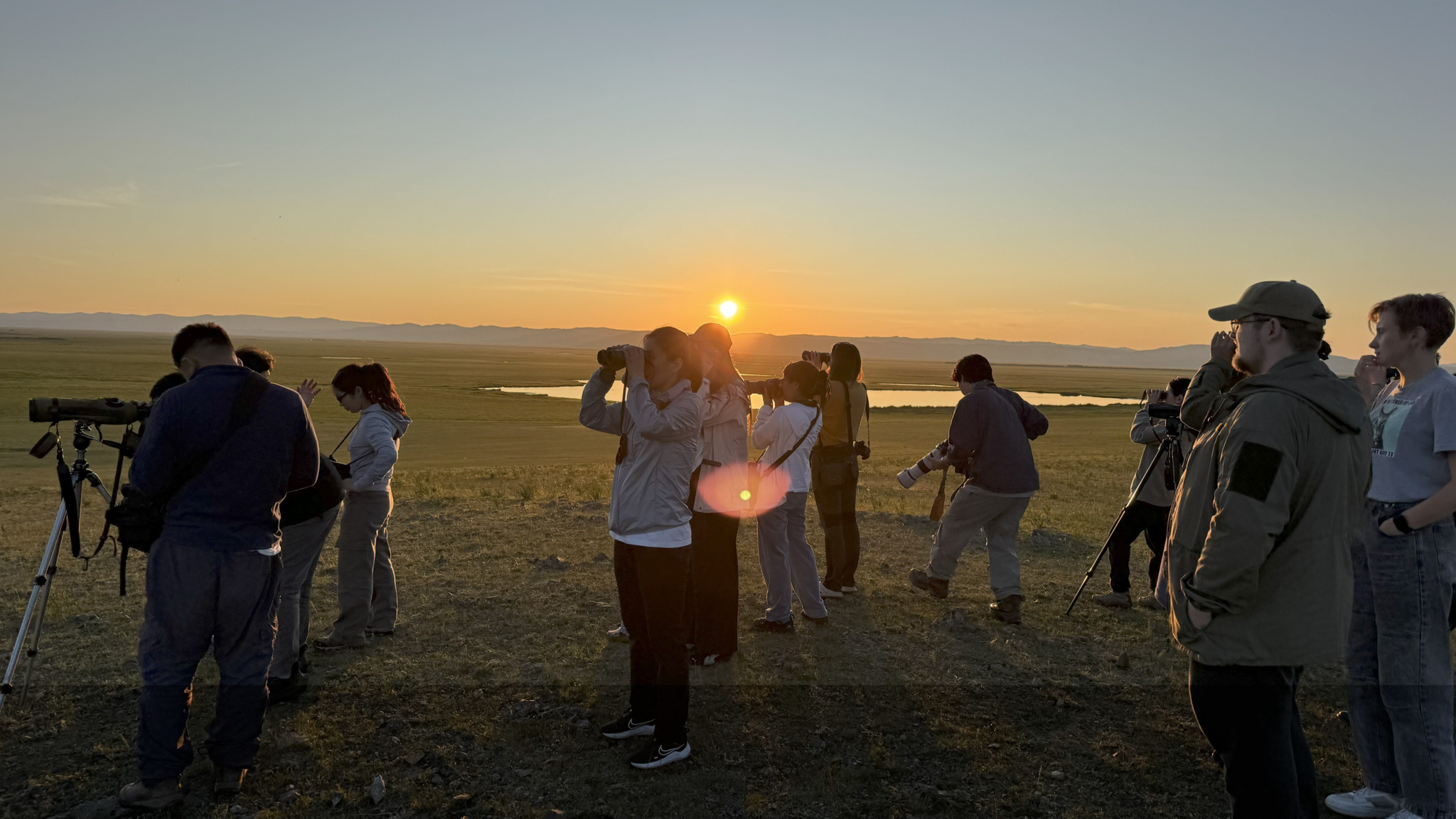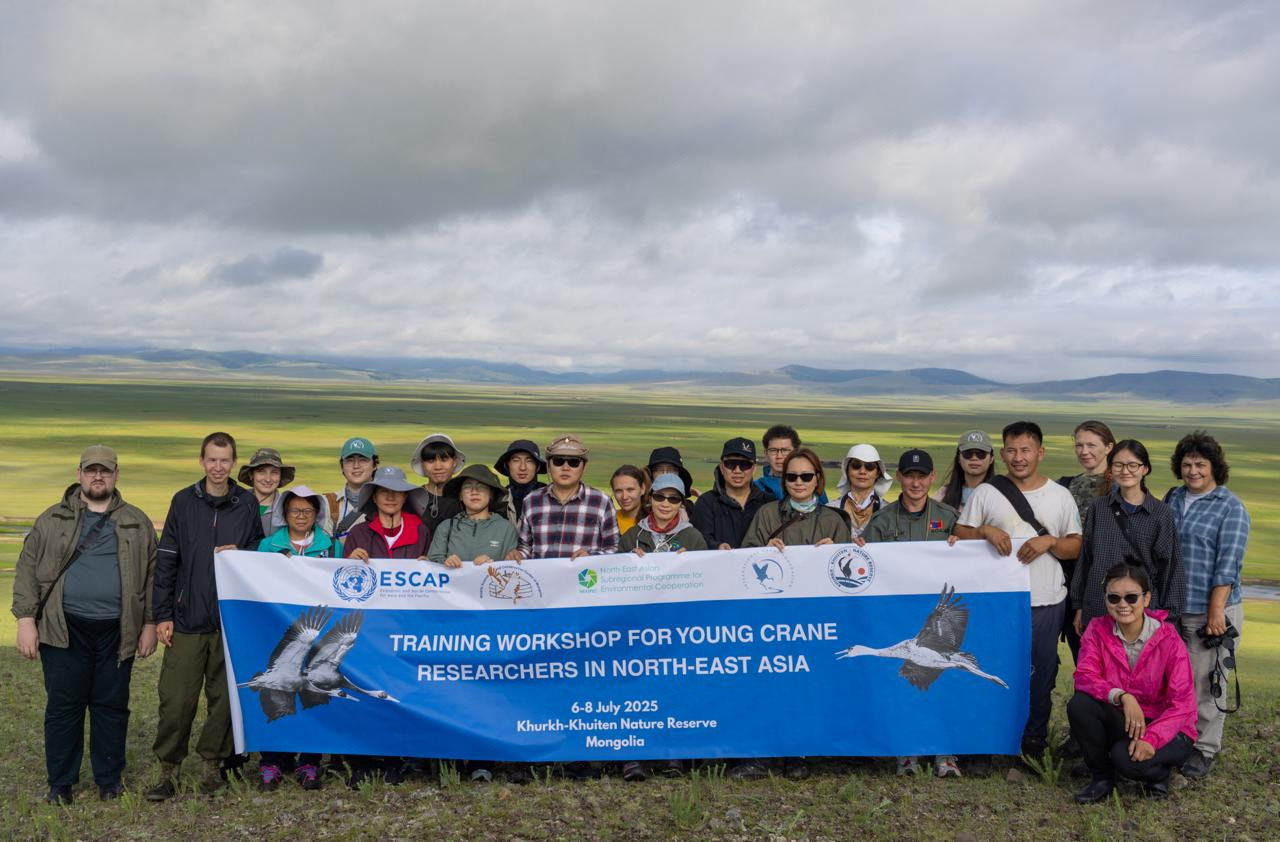Shaping future conservationists: Northeast Asia’s young crane researchers trained in Mongolia
A three-day training workshop for young crane researchers brought together crane experts and early-career conservationists from across Northeast Asia to gain hands-on experience in crane monitoring, color banding, migration tracking, habitat assessment, and conservation planning, while fostering regional collaboration.
The training workshop for young crane researchers was successfully held in the heart of one of Asia’s most important crane habitats - the Khurkh and Khuiten Nature Reserve in northeast Mongolia. This internationally significant site, home to White-naped Cranes, Demoiselle and Eurasian Cranes, served as both a classroom and a field site for a new generation of crane conservationists from across Northeast Asia. The training workshop was organized by the UN Economic and Social Commission for Asia and the Pacific: East and North-East Asia Office (https://unescap.org/) and the Wildlife Science and Conservation Center of Mongolia (https://www.wscc.org.mn/) in partnership with the International Crane Foundation (https://savingcranes.org/asia/).

Over the course of three days of the workshop, young crane researchers and early-career conservation practitioners from Mongolia, Russia, China, Japan, and South Korea gained knowledge and hands-on experience in crane survey and monitoring, color banding, GPS tracking, applications of drone and remote sensing techniques, wetland habitat assessment, data analysis, and planning of conservation and education activities. The training combined expert-led lectures, field and lab exercises, and cross-border discussions aimed at fostering regional collaboration and building long-term capacity for wetland and crane conservation.

“On behalf of NEASPEC, we are pleased to have organized this workshop, as part of the NEASPEC project on "Connectivity Conservation for Habitats of Flagship Migratory Birds in North-East Asia", with our amazing partners in Northeast Asia. The North-East Asian Subregional Programme for Environmental Cooperation (NEASPEC) is a comprehensive intergovernmental cooperation framework addressing environmental challenges in North-East Asia. One of its main aims is to support and strengthen international cooperation on nature conservation in the region. It was great to see all these young people come together, meeting senior experts from the subregion, share their experiences, and expand their networks. We strongly believe this training will be a big boost in crane and nature conservation in North-East Asia,” said Mr. Ganbold Baasanjav, Head of ESCAP North-East Asia office and secretariat of NEASPEC.

“This workshop was not only a chance to build skills, but also to connect and inspire future leaders in conservation across our shared flyway. Khurkh and Khuiten Nature Reserve, where we have the highest nesting density of White-naped Crane, was a perfect place to host such a training workshop,” said Dr. Nyambayar Batbayar of the Wildlife Science and Conservation Center of Mongolia, who served as the host and one of the main organizers of the training.
Ms. Yu Qian, the Director of East Asia of International Crane Foundation, said “The International Crane Foundation has been working on crane conservation in Asia for over 30 years, and we are deeply grateful for NEASPEC’s support of young crane researchers in the region. This initiative represents a major contribution to the future of crane conservation in Asia.”


